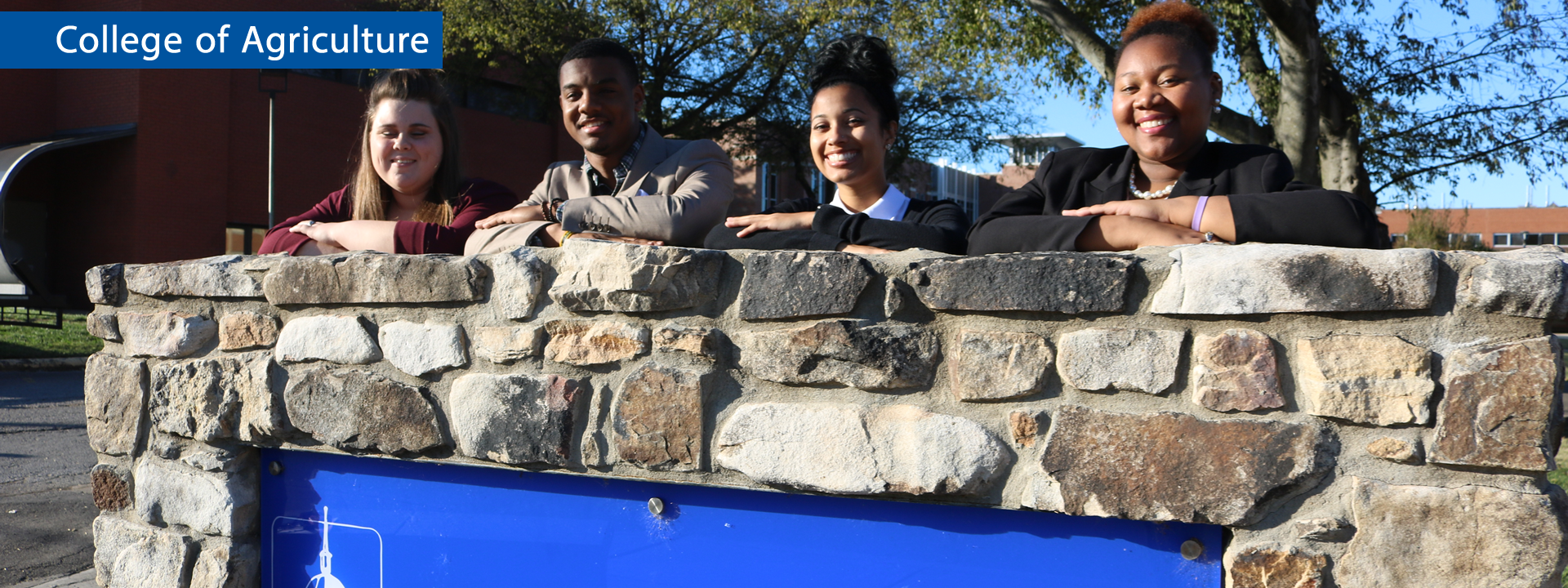- Home >
- College of Agriculture
- > Promoting the well-being of children and families
Promoting the well-being of our communities and families
Research to keep our communities strong
Assessing Farm Labor Use and Off-Farm Employment by Small Tennessee Farmers
Impacts of Severe Weather on Food Prices and Consumers in the U.S.
Building Capacity of Youth - Active and Media Savvy (YAMS)
Assessing Farm Labor Use and Off-Farm Employment by Small Tennessee Farmers
Dr. Fisseha Tegegne
The goal of this project is to contribute to knowledge on the subjects of farm labor use and off-farm employment by small Tennessee farmers. The objectives of the project are: 1) to characterize current labor use by small Tennessee farmers, 2) to examine the degree of off farm employment by small farmers and factors influencing their decision to seek such jobs and 3) to develop publications and disseminate findings of the project to stakeholders including other farmers, researchers, extension agents and policy makers. A comprehensive review of relevant literature will be undertaken and a mail survey will be used to collect primary data from farmers through the Tennessee Agricultural Statistical Service. The data collection will include the extent of the farmers' participation in off farm employment, characteristics of the farmers and that of their operations. Qualitative and quantitative methods will be used to analyze the data. Findings from the project will be disseminated to various stakeholders at local, state, regional and national forums. The project will also generate refereed and non-refereed publications that will be made widely available.
Impacts of Severe Weather on Food Prices and Consumers in the U.S.
Dr. Lan Li
United States has experienced severe weather events and climate anomalies in recent years. Agriculture and food production United States has experienced severe weather events and climate anomalies in recent years. Agriculture and food production are easily impacted by natural events and disasters, because they rely on the weather, climate, natural resources, especially water to thrive. The drought in California in 2013-14 is one of the driest in recorded history following two consecutive dry years throughout the state. California produces nearly half of all U.S.-grown fruits, vegetables, and tree nuts. The drought potentially has considerable impacts on supplies, prices, and consumptions of affected products. Meanwhile, many parts of the U.S. were affected by extreme cold winter in 2013-14. Cold weather along with rising energy costs can impose financial burden on families. Low-income families are likely to have limited resources to cope with budgetary pressure, especially from unanticipated events and weather, and hence might be hit the hardest. Tennessee among other states in the South experienced a devastating flood in 2010, a significant drought in 2012, and a harsh winter in 2013-14, all at historical record levels. Many states in the South also have higher poverty rates and higher prevalence of food insecurity than other states. These critical conditions and situations are of national significance and of local and regional pertinence. Current research is very limited and research gaps and needs exist in examining these important issues. The project aims to examine the effects of severe weather events in 2013-14 on food prices and consumers in the U.S. Specifically, this project will investigate food prices for consumers and producers and examine the effects of anomalous weather events on these prices. The study will also assess important factors and market forces that influence food prices in tandem with severe weather shocks. The study will also examine how changes in food prices and severe weather conditions affected food consumption, in particular for low-income households. This empirical study will utilize most recent weather and economic data and apply various rigorous statistical and econometric methodologies. Many scientists and experts predict increasing risks for droughts and abnormal weather phenomena that threat agriculture and food supply in the future in the U.S. as well as worldwide. It is central to gain scientific evidence and knowledge of the impacts of severe weather events through rigorous research, which will help us improve our understanding of the issues, associated factors and causes, uncover problems, find solutions, and prepare us for the future. Effective strategies, programs, and policies depend critically on science-based knowledge of the issues at stake. The knowledge will benefit policy and program development and implementation. The knowledge gained will help inform families, producers, businesses, policy makers, and any other pertinent decision-makers, and hence help them make better decisions, better manage future events, and mitigate adverse impacts, especially for those in need the most. The project will also contribute to the institutional capacity building, enhance expertise, enrich curriculum, and instigate research opportunities for students.
Building Capacity of Youth - Active and Media Savvy (YAMS)
Dr. V. Oates, Dr. E. Ekanem, Dr. R. Fleming
Being Black in America is an experience that affects people socially, politically, and economically, and contributes directly to health disparities. Since African American households are reported to watch more television than other Americans, the influences of media may contribute to the disproportionately higher rates of obesity among African Americans. We hypothesize that raising awareness and appreciation of the African American experience and African traditions will mediate positive lifestyle behaviors and counteract the harmful effects of negative cultural values and media. This intervention uses the PEN-3 cultural health framework, community-based participatory research methods, and an adaptive experimental design to: 1) Explore culturally acceptable methods to counteract negative media influences, unhealthy dietary behaviors, and sedentary lifestyles; 2) Increase media literacy and improve the food choices, dietary intake, and nutrition-related attitudes of youth in our communities; 3) Use findings to incorporate culturally empowering health behaviors and messages into a summer camp intervention; and 4) Pilot test and refine the summer camp curriculum using adaptive design methods. The goal of the after-school program is to empower children aged 8 to 14 years to improve their dietary behaviors and practices by increasing: (1) media literacy; (2) healthy cooking and food preparation skills; (3) food safety knowledge; and (4) daily physical activity.
webpage contact:
SACS


